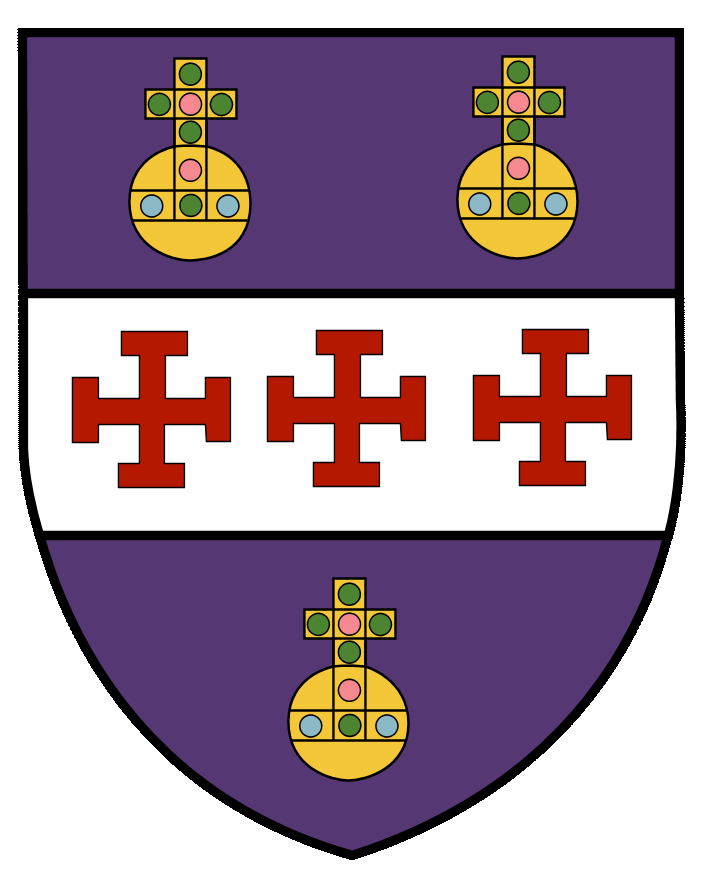
St. Luke's Anglican Church
Traditional Anglican Service from the 1928 Book of Common Prayer
Who we are
We at St. Luke's Orthodox Anglican Church are committed to the traditional Episcopal service as outlined by the 1928 Book of Common Prayer. St. Luke's is a member of the Orthodox Anglican Church as well as the world-wide Orthodox Anglican Communion. St. Luke's and the Orthodox Anglican Church are not a part of or in communion with The Episcopal Church.
God the Father, God the Son, and God the Holy Ghost
We worship the only One God, the Holy Trinity, God the Father, God the Son Jesus Christ, and God the Holy Ghost. We endorse as true the explanations of God the Father, God the Son, and God the Holy Ghost that are provided in the first four Ecumenical Councils: the First Council of Nicaea; the First Council of Constantinople; the Council of Ephesus; and the Council of Chalcedon.
We believe that Jesus Christ, the Son of Man, the Son of God, is the Alpha and the Omega. We believe that Jesus Christ is the Way, the Truth, the Life. We believe that no person comes to God the Father except by Jesus Christ. We believe that acceptance of the gift of grace of the atoning death of Jesus Christ and faith in Jesus Christ is necessary for salvation.
The Sacraments
We are a church that endorses the saving powers of the sacraments of Baptism and Holy Communion. We believe in the Real Presence of the Body and Blood of Jesus Christ in the Holy Eucharist. We invite to the Holy Eucharist all who are baptized in the Name of the Father, and of the Son, and of the Holy Ghost; and believe in the Real Presence of Jesus Christ in the consecrated wine and bread of the Holy Eucharist.
St. Ignatius of Antioch was early Christian Bishop who was martyred when he was killed by lions in a pagan Roman stadium. Early Christian tradition is that he knew St. John, who wrote the Gospel according to John, the three letters of John, and the Book of Revelation. St. Ignatius wrote in a letter that the Eucharist is "the medicine of immortality and the antidote against death, enabling us to live forever in Jesus Christ."
Catholic, Evangelical, and Protestant
We are a Catholic Church--but not a Roman Catholic Church. Catholic derives from the Greek word katholicos, which means universal; there should be no divisions among the saved of God's Church. All Christian churches that are saved will be part of the universal, in other words, the Katholicos Church.
The first person to apparently use the term katholicos was the ancient Christian martyr St. Ignatius, Bishop of Antioch. We believe with St. Ignatius that there is and will be one universal Church in Heaven. We do not believe that God will divide Heaven according to denominations. We do not use the term Catholic to apply to a specific denomination, such as Roman Catholicism.
St. Vincent of Lerins was a soldier-turned-monk and saint who explained Catholic or Universal Christianity in the 5th century: "Let us hold that which has been believed everywhere, always and by all, for that is truly and properly Catholic." We do not want to subtract or add to this ancient, pure, universal Christian faith. As such, we pay careful attention to the Ancient Church Fathers, who helped to explain this ancient, pure, and universal Christian faith.
We do use the term Catholic to emphasize our continuity with ancient biblical Christianity. The Anglican Church in America endorses the ancient universal Christian beliefs, with a special emphasis on the forms of worship that grew in the British Isles before there was a nation of England.
We believe in the inerrancy, the God-inspiration, and infallibility of the most amazing book on Earth, The Holy Bible. Thomas Cramner, the Archbishop of Canterbury, began the first sermon of the Book of Homilies during the Reformation: "Unto a Christian man, there can be nothing either more necessary or profitable than the knowledge of holy Scripture...." Archbishop Cramner carefully explains how all that is required for our salvation is explained in the Bible.
We believe in the ancient creeds: The Apostles Creed, the Nicene Creed, and the Athanasian Creed.
We are an Evangelical Church. We strive to tell of the Good News of the Gospel of Jesus Christ. We preach the atoning sacrificial death of Jesus Christ, Son of Man, Son of God, on the Cross. It is only through that atoning sacrifice of the Perfect Lamb that God has made open to sinful flesh the gift of grace for all humankind to become holy to God. That is the only road that takes us on the journey to heaven. This tradition of evangelism is displayed ably by the famous saints of the British Isles, such as Patrick, Columcille, Aidan, Bridgid, Hilda, Botolph, and Chad.
We are a Reformed and a Protestant Church. We acknowledge our debt to the men and women of the Reformation, especially the English reformers, who sought to correct the errors of the medieval Church in the West. As a reformed Church, We acknowledge our debt to the English reformers, and endorse the 39 Articles of the English Reformation. We interpret the 39 Articles in their literal and historic context.
Ancient and Authentic
We strive to preserve the "the faith which was once for all delivered to the saints," as it was described by St. Jude, the kinsman of Jesus Christ. As such, we believe in the Apostolic Succession. We believe that Jesus Christ delivered that faith to the Holy Apostles, who delivered that faith to deacons, priests, and bishops of the Universal or Catholic Church that exists on Earth and in Heaven, now and forever.
Through the love and grace of God, this ancient faith can exhilirate you, can transform you, can save you, and can give you peace in a troubled world.